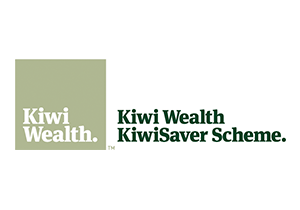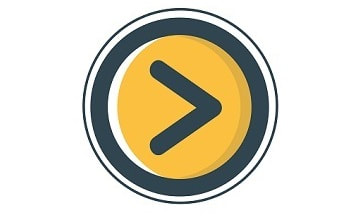Kiwi Wealth KiwiSaver Scheme Review
Updated 26 July 2019
Summary of Kiwi Wealth KiwiSaver
- Funds: Kiwi Wealth offers KiwiSaver members the choice of five funds, with over $4 billion under management. The funds range from low-risk cash, default and balanced funds, to a higher-risk growth fund.
- Management: All of the funds are actively managed by a fund manager, which increases fees compared to index-based funds such as Simplicity of Superlife.
- Performance: The latest fund performance from our KiwiSaver comparison tool shows Kiwi Wealth's funds lagging behind other funds when it comes to Balanced and Growth-type funds. To put this in dollar terms, a 1% or 2% difference in annual fund performance at the age of 35 can cost tens of thousands of dollars (or more) by the time you hit retirement for an average KiwiSaver member.
- Fees: Kiwi Wealth announced a fee reduction in April 2019, and is committed to lowering the fees of the Conservative fund and Balanced fund due to "sufficient scale and with greater efficiencies". Further to this, Kiwi Wealth does not charge a membership fee; instead, you pay either a minimum of $40, or up to 1% of your balance per year, whichever one is higher. There are no joining fees or exit fees if you take your money to another fund, or switch funds within Kiwi Wealth.
- No Performance Fees: There are no performance fees, despite the funds being actively managed. Many KiwiSaver fund managers take a bite of any market-beating returns - Kiwi Wealth does not.
- Ownership: Kiwi Wealth started life as Gareth Morgan Investments (GMI), before Kiwi Group purchased the company and re-branded it in 2014. Today, the six funds are managed actively by Kiwi Wealth investment managers, and Gareth Morgan has no involvement whatsoever. Kiwi Wealth is a subsidiary of Kiwi Group Ltd, the owner of Kiwibank. The ultimate owner of Kiwi Wealth is NZPost, ACC and the NZ SuperFund (all interests are government-owned).
Read this First: Fees, Performance and Understanding What's Best For Your Situation
Our Review
In this guide, we outline what the Kiwi Wealth KiwiSaver scheme is, what funds it offers to KiwiSaver members, and how they're different to other funds, as well as looking at alternatives and the level of fees involved.
Please note: MoneyHub is not a Financial Adviser, and this guide has been published to explain the investment fundamentals and outline the pros and cons of Kiwi Wealth as a KiwiSaver investment option.
This Guide covers:
- A lot of media attention focuses on KiwiSaver fees, but this is only one thing to consider when picking the most suitable provider and fund for your retirement needs.
- We believe that being comfortable with what you're investing in is the most important aspect of saving for your retirement, not the fee you'll pay.
- While we don't focus on the latest returns, we encourage readers to make their own comparisons using our KiwiSaver fund comparison tool.
- Ultimately, deciding upon whether Kiwi Wealth is right for you will most likely come down to your interpretation of the fund performances in the medium term, their investment strategy and their fees.
Our Review
In this guide, we outline what the Kiwi Wealth KiwiSaver scheme is, what funds it offers to KiwiSaver members, and how they're different to other funds, as well as looking at alternatives and the level of fees involved.
Please note: MoneyHub is not a Financial Adviser, and this guide has been published to explain the investment fundamentals and outline the pros and cons of Kiwi Wealth as a KiwiSaver investment option.
This Guide covers:
The Specs of the Kiwi Wealth KiwiSaver Funds - fees, risks and explaining where your money is invested
- The scheme is managed by Kiwi Wealth Limited. Kiwi Wealth is a sister company of Kiwibank,.
- Up-to-date fund performance data is available on the Kiwi Wealth website.
- Each of the five funds has a unique risk factor (1 = lowest, 7 = highest) which is driven by its distinct investment profile.
- Fees, returns, risks and the suggested investment timeframe differ between funds, as we outline below.
1: Kiwi Wealth Cash Fund
This fund invests solely in income assets of a short term nature such as bank deposits, floating rate notes and money market securities with New Zealand-registered banks.
We say: The Cash Fund is the most conservative Kiwi Wealth fund, with the aim of providing stable returns over the short term, investing 100% of the fund into cash products such as term deposits and on-call accounts. The Cash Fund historically offers the lowest fees and reports the lowest historical return among all the Kiwi Wealth funds.
This fund invests solely in income assets of a short term nature such as bank deposits, floating rate notes and money market securities with New Zealand-registered banks.
- Average annual net return since fund launch (2012): ~2%
- Annual fee: 0.45%
- Risk factor: 1
- Expected annual return: To exceed the returns you would receive from investing 100% of your funds in New Zealand cash
- Suggested minimum investment timeframe: no minimum (as this is cash-based fund, there is very little risk of any investments falling in value)
- Investment Composition: Cash and cash equivalents 100%
We say: The Cash Fund is the most conservative Kiwi Wealth fund, with the aim of providing stable returns over the short term, investing 100% of the fund into cash products such as term deposits and on-call accounts. The Cash Fund historically offers the lowest fees and reports the lowest historical return among all the Kiwi Wealth funds.
2: Kiwi Wealth Default Fund
This fund invests in some shares (local and international), while its primary focus is on cash and fixed interest investments (i.e. bank deposits and bonds).
We say: The Default Fund is low-growth focused, with a maximum of 25% of money invested into shares. Recent investments include cash deposits with other banks, bank bonds (NZ and overseas) and NZ government debt. Despite performing better than Kiwi Wealth's cash-focused funds, the Default fund has lower fees.
This fund invests in some shares (local and international), while its primary focus is on cash and fixed interest investments (i.e. bank deposits and bonds).
- Average annual net return since fund launch (2014): ~4%
- Annual fee: 0.52%
- Risk factor: 3
- Expected annual return: To deliver a benchmark return similar to being invested in a fund of 50% in New Zealand cash, 30% in New Zealand fixed interest assets and 20% in shares and other growth assets
- Suggested minimum investment timeframe: 1-3 years
- Investment Composition: 15% to 25% shares and other growth assets, with 65% to 75% allocated to fixed interest assets.
We say: The Default Fund is low-growth focused, with a maximum of 25% of money invested into shares. Recent investments include cash deposits with other banks, bank bonds (NZ and overseas) and NZ government debt. Despite performing better than Kiwi Wealth's cash-focused funds, the Default fund has lower fees.
3: Kiwi Wealth Conservative Fund
This is Kiwi Wealth's middle of the road fund, with a target to invest 70% of money into cash-based assets (bank deposits, term deposits etc) and 30% into growth assets, such as international shares. This fund is designed for those not wanting to be overly exposed to global sharemarket movements, but at the same time don't want to miss out on the benefits from increasing share prices, although exposure is limited.
We say: Kiwi Wealth's Conservative Fund stays relatively risk-free by allocating up to 100% of the fund to safe, income-producing assets such as bank deposits, company and government bonds. The fund fees are in line with many other KiwiSaver conservative funds, but better value (and historically better-performing funds) may be worth considering.
This is Kiwi Wealth's middle of the road fund, with a target to invest 70% of money into cash-based assets (bank deposits, term deposits etc) and 30% into growth assets, such as international shares. This fund is designed for those not wanting to be overly exposed to global sharemarket movements, but at the same time don't want to miss out on the benefits from increasing share prices, although exposure is limited.
- Average annual net return since fund launch (2007): ~4.00%
- Annual fee: 0.86%
- Risk factor: 3
- Expected annual return: To exceed the returns you would receive from investing 70% of your funds in New Zealand fixed interest assets and cash, and 30% in global shares
- Suggested minimum investment timeframe: 3 to 5 years
We say: Kiwi Wealth's Conservative Fund stays relatively risk-free by allocating up to 100% of the fund to safe, income-producing assets such as bank deposits, company and government bonds. The fund fees are in line with many other KiwiSaver conservative funds, but better value (and historically better-performing funds) may be worth considering.
4: Kiwi Wealth Balanced Fund
This fund allocates up to 70% of money into growth assets (international and New Zealand shares), and up ~30% in low-risk investments such as term deposits. The fund is designed for long-term investment and to take advantage of the reliability of income-producing assets (i.e. interest received from cash investments), and the growth potential of specific sharemarket investments.
We say: The Balanced Fund is the largest fund Kiwi Wealth operates, with over $1.6 billion invested. The fund is weighted in favour of equity investments, but despite being growth-orientated, it continues to struggle to match the returns offered by other provider's balanced funds, notably in 2018 and 2019. The Balanced fund, like the Growth fund below, is a medium to long-term investment as month-to-month returns can variate with the movements in global sharemarkets.
This fund allocates up to 70% of money into growth assets (international and New Zealand shares), and up ~30% in low-risk investments such as term deposits. The fund is designed for long-term investment and to take advantage of the reliability of income-producing assets (i.e. interest received from cash investments), and the growth potential of specific sharemarket investments.
- Average annual net return since fund launch (2007): ~6.00%
- Annual fee: 1.05%
- Risk factor: 4
- Expected annual return: To exceed the returns you would receive from investing 45% of your funds in New Zealand
fixed interest assets and cash, and 55% in global shares - Suggested minimum investment timeframe: 5 to 10 years
We say: The Balanced Fund is the largest fund Kiwi Wealth operates, with over $1.6 billion invested. The fund is weighted in favour of equity investments, but despite being growth-orientated, it continues to struggle to match the returns offered by other provider's balanced funds, notably in 2018 and 2019. The Balanced fund, like the Growth fund below, is a medium to long-term investment as month-to-month returns can variate with the movements in global sharemarkets.
5: Kiwi Wealth Growth Fund
This fund invests up to 90% of its money in shares and other growth assets, and will (usually) have some invested in cash and fixed interest assets. Investments include Microsoft, Alphabet (Google), Nestle, Visa, Amazon.com and Coca Cola, among others.
We say: The Growth Fund is the most aggressive Kiwi Wealth fund, with up to 90% of money allocated to international shares. The biggest risk is that in the short term the value of the fund goes down if global markets drop, but in the long term the fund is expected to make returns above any fixed-income assets such as term deposits. At least 10% of the fund is retained for investments in fixed interest and bonds from government and companies with good credit ratings. Because of the investment profile, the value of the fund will go up and down daily. The Growth Fund is very much a long-term fund for this reason, and Kiwi Wealth suggests a ten year minimum investment period.
This fund invests up to 90% of its money in shares and other growth assets, and will (usually) have some invested in cash and fixed interest assets. Investments include Microsoft, Alphabet (Google), Nestle, Visa, Amazon.com and Coca Cola, among others.
- Average annual net return since fund launch (2007): ~8.00%
- Annual fee: 1.15%
- Risk factor: 4
- Expected annual return: To exceed the returns you would receive from investing 80% of your funds in global shares, and 20% of your funds in New Zealand fixed interest assets
- Suggested minimum investment timeframe: 10+ years
We say: The Growth Fund is the most aggressive Kiwi Wealth fund, with up to 90% of money allocated to international shares. The biggest risk is that in the short term the value of the fund goes down if global markets drop, but in the long term the fund is expected to make returns above any fixed-income assets such as term deposits. At least 10% of the fund is retained for investments in fixed interest and bonds from government and companies with good credit ratings. Because of the investment profile, the value of the fund will go up and down daily. The Growth Fund is very much a long-term fund for this reason, and Kiwi Wealth suggests a ten year minimum investment period.
Kiwi Wealth in the News
Recent media reports highlight the following:
"Kiwi Wealth added 14,493 members to its KiwiSaver scheme and more than $500 million in funds between April 1, 2018 and March 31, 2019.
Recently, Kiwi Wealth slashed fees for its Conservative fund from 1% to 0.83% per annum, with additional reductions for its cash, growth and balanced funds.
It also challenged all at-scale KiwiSaver scheme providers to look to cut fees".
- Kiwi Wealth hits $6 billion mark, NZ Adviser, May 2019
- "KiwiSaver provider Kiwi Wealth has started the roll-out of the country's first robo advisory service.
- Until now, personalised financial advice could only be given by a human being, largely limiting financial advice to the wealthy with the funds to pay fees and commission.
- It had the potential for getting more people to switch to funds that are more appropriate to their long-term saving goals".
"Kiwi Wealth added 14,493 members to its KiwiSaver scheme and more than $500 million in funds between April 1, 2018 and March 31, 2019.
Recently, Kiwi Wealth slashed fees for its Conservative fund from 1% to 0.83% per annum, with additional reductions for its cash, growth and balanced funds.
It also challenged all at-scale KiwiSaver scheme providers to look to cut fees".
- Kiwi Wealth hits $6 billion mark, NZ Adviser, May 2019
Who is Kiwi Wealth's KiwiSaver Scheme Suited To?
Ultimately, our view is that Kiwi Wealth funds are adequate, but significantly better options can be found elsewhere despite the lower fees coming into effect.
KiwWealth offers six actively managed funds, but the returns have not had the traction of their rivals. The issue appears to be long-standing, with Stuff.co.nz reporting in July 2016 that Kiwi Wealth funds were languishing at the bottom of performance tables.
Despite a fee drop, and a cap of fees up to 1% p.a. on balances for the growth fund, we take the view that the fund offering could be better. Specifically, the historical returns struggle when compared to the bulk of similarly structured KiwiSaver funds.
In our view, it's an average offering, and better options are out there with specialist providers such as Milford, Fisher Funds, Simplicity, Booster and Generate.
Standout Features:
Pros
Cons
Be aware:
KiwWealth offers six actively managed funds, but the returns have not had the traction of their rivals. The issue appears to be long-standing, with Stuff.co.nz reporting in July 2016 that Kiwi Wealth funds were languishing at the bottom of performance tables.
Despite a fee drop, and a cap of fees up to 1% p.a. on balances for the growth fund, we take the view that the fund offering could be better. Specifically, the historical returns struggle when compared to the bulk of similarly structured KiwiSaver funds.
In our view, it's an average offering, and better options are out there with specialist providers such as Milford, Fisher Funds, Simplicity, Booster and Generate.
Standout Features:
- Kiwi Wealth has an active responsible investing policy, which prevents investments in tobacco, controversial and nuclear weapons, whaling and whale meat processing, companies with highly unethical behaviour or involved in, defence and firearms, gambling services, thermal coal, nuclear power or palm oil.
- Unlike other banks' KiwiSaver schemes, Kiwi Wealth is New Zealand owned and operated.
Pros
- Five funds that offer a sliding scale of risk and return, clearly defined in investor statements
- All funds have an actively managed investment strategy, aiming to beat specific indexes such as the NZX50 and specific fixed-interest indices. This means that Kiwi Wealth manages the KiwiSaver funds intending to get the best possible return for their investors.
- Investments are diversified and include cash deposits, NZ government bonds and NZ corporate bonds and global equities.
- Up to date fund performance and balances are available 24/7 via Kiwi Wealth's website.
Cons
- Despite a drop on fees in 2019, Kiwi Wealth's Balanced and Growth fund management fee is much higher than similar low-fee, index-following funds offered by Simplicity, SuperLife, as well as the ASB (although none of the ASB funds are actively managed, and therefore not designed to beat markets).
- There is no life/age program option, which moves your money into more conservative (i.e. less risky) funds as you get older as a way to protect your KiwiSaver balance, is offered. Those wanting lower risk investments would need to select between the Cash, CashPlus, Conservative or Default funds, meaning there is potential for lost returns.
Be aware:
- Long-standing fund performance among the banks, with Growth and Balanced funds, in particular, tend to be rather lacklustre.
- As with any investment, markets go up and down. The Dotcom bubble in the early 2000s sank global sharemarkets, as did the 2008 Global Financial Crisis. While many global sharemarkets are now at record highs, this is no guarantee of future earnings.
- Kiwi Wealth's Default Fund lacks growth potential, given its low exposure to shares (20% of the portfolio). This means unaware savings are likely to lose out on potential returns by staying with the default option.
Kiwi Wealth KiwiSaver - The Bottom Line
- We are not huge fans of Kiwi Wealth's KiwiSaver funds, but continue to monitor the fund performance closely and update our scheme review as necessary.
- Right now, we don't see key funds like Growth and Balanced offering value for money, nor do they deliver market-leading returns or make the most of global market opportunities.
- It is likely that, regardless of your KiwiSaver balance, other funds in other KiwiSaver schemes may well charge lower management fees and have a history of better returns. Banks in New Zealand make a lot of money from KiwiSaver, and Kiwi Wealth is no exception, despite the commitment to lower fees.
- It's important to keep in mind that no two funds are directly comparable, so it's essential to shop around and compare fund objectives as well as fund fees if you're serious about having the biggest KiwiSaver nest-egg possible.
9 things to know about the Kiwi Wealth KiwiSaver scheme
Kiwi Wealth is growing but is still small compared to ASB, ANZ and AMP, and most other banksBecause Kiwibank is a smaller bank than the established players, and perhaps because it didn't aggressively launch KiwiSaver products back in 2007, it's smaller in size than most other banks. Yet despite that, it's the fifth largest KiwiSaver provider, with double the funds under management of the BNZ scheme, and $1.5 billion more than the next largest provider
However, despite the size, it doesn't mean it will offer leading products. Generally, banks are not often as efficient providers or as dynamic as they could be. We take the opinion that Kiwi Wealth, which is innovative in other products, has a huge opportunity to challenge the status quo. With around 8% of the total KiwiSaver funds under management, Kiwi Wealth's market position and brand could be used to differentiate itself from other banks and deliver a better KiwiSaver offering. We watch their moves closely to see if they will go further than simply lowering fees. |
No matter what your employer's default KiwiSaver provider or fund is, you are entitled to select any Kiwi Wealth KiwiSaver fundYour employer may offer another default KiwiSaver provider, but you are free to choose Kiwi Wealth KiwiSaver as your provider if you feel it's right for you.
Are you in Kiwi Wealth by default? If you find yourself in Kiwi Wealth by default, you will either have your KiwiSaver money go to the Default fund or the Balanced fund, depending on how you joined:
|
There is no minimum investment, and it's easy to take contribution holidaysAs a Kiwi Wealth member, you'll pay a streamlined fee:
|
Dividends your fund receives are reinvested, meaning more cash is invested on your behalfFour of the six Kiwi Wealth funds invest in shares, and many will pay dividends. These cash payments represent the profits from companies returning it to the shareholders, i.e. you. When a company declares a dividend, your fund will receive money, and it is re-invested into more shares, growing the value of your fund. Despite being a cash payment, and as is the case with ALL KiwiSaver funds, there is no option to take this money as cash until you turn 65.
|
All of Kiwi Wealth's KiwiSaver funds are actively managed, with the Conservative, Balanced and Growth funds aiming to beat market returnsKiwi Wealth states in its Product Disclosure Statement:
This means the funds are actively managed - each fund has its own key personnel, tasked with the responsibility of portfolio management and analysis. Kiwi Wealth will then select specific investments it sees as undervalued, anticipating that in time, the value of the investment will grow and ultimately make a profit for the fund. How does this work in practice?
|
Signing up to Kiwi Wealth's KiwiSaver scheme isn't complicatedSigning up to the Kiwi Wealth scheme is easy, but you’ll need to decide your fund first. Helpfully, the names of the five funds - Cash, Default, Conservative, Balanced and Growth, are free of buzzwords or spin.
Generally, if you're looking for a safe investment with the lowest risk of seeing your original investment fall, a conservative fund could be a suitable option. But many investment professionals would suggest being in a conservative fund for the long term. If you're looking for a higher return and are prepared to have your money in higher risk investments which could fall in value, balanced and growth funds operate in this manner. If you're not sure of what to invest in and want to have a range of options to pick from, look at MoneyHub's KiwiSaver fund comparison tool which includes the six Kiwi Wealth funds. |
The default Kiwi Wealth fund may not be appropriate for your KiwiSaver needsIf you have been enrolled in the Kiwi Wealth scheme by default by the IRD, you will be put in the Kiwi Wealth Default Fund. Generally, if you want to grow your KiwiSaver fund for the long-term, and unless you're risk-averse, the default fund isn't likely to make you high returns. Share investments are limited to 25%, meaning up to 75% of the money can sit in bank accounts, low-interest bonds and other fixed-interest.
If you are in this fund and would prefer a more aggressive fund with slightly higher fees and the possibility of better returns, you have the option to switch free of charge. You can switch to another Kiwi Wealth KiwiSaver fund, or any other KiwiSaver fund operated by another scheme. You can also opt-out of KiwiSaver altogether if you do not wish to participate (subject to timing restrictions). |
The performance data is easy to follow, and updated regularlyFund performance details are published on the Kiwi Wealth website every three months. As a member, you can also check a fund balance 24/7 by logging in to the Kiwi Wealth website.
|
None of the funds invest significantly in New Zealand sharesWe asked Kiwi Wealth about their decision to only invest a small percentage of KiwiSaver funds in New Zealand equities. There response is below:
We can't comment on their 'global view' other than to say we disagree that New Zealand equities, in general, are overvalued, and that shares are 'somewhat 'illiquid'. Despite this, we respect Kiwi Wealth's investment decision making and underlying rationale for targeting global markets. |
Our Conclusion
- Kiwi Wealth is luring new members into its Growth and Balanced funds, and the announcement of lower fees is welcomed. However, the returns are in-line, or worse, than other bank funds so far and we see little chance of improvement in the short-term.
- Kiwi Wealth charges you a premium for its services - the fees you will pay each year are double or triple what low-cost providers like Simplicity charge, despite reporting consistently lower returns.
- With four of the five funds, investors can get exposure to the Australian sharemarket, emerging markets, local and global bonds, global property as well as New Zealand cash deposits.
- The active management means particular shares will be bought, at the discretion of the fund manager, so there is a risk of negative returns if the investment doesn't perform.
- With every fund offered, the higher the weighting of growth assets vs income assets, the higher the annual management fee. This is expected to be offset by the long-term performance of the fund.
- Ultimately, our view is that the Kiwi Wealth funds are adequate, but significantly better options can be found elsewhere despite the lower fees coming into effect.
Do you have experience with Kiwi Wealth's KiwiSaver scheme that you would like to share with our readers? Email our research team who would be delighted to hear from you.

















